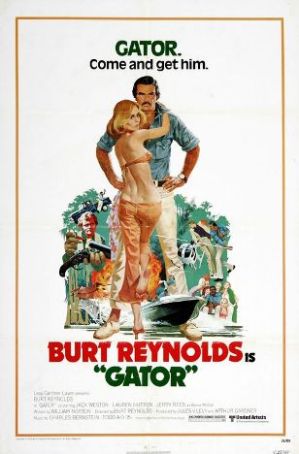 Emperor of the North Pole is the story of depression-era hobos and one man who is determined to kill them.
Emperor of the North Pole is the story of depression-era hobos and one man who is determined to kill them.
The year is 1933 and Shack (Ernest Borgnine) is one of the toughest conductors around. At a time when destitute and desperate men are riding the rails in search of work and food, Shack has declared that no one will ride his train for free. When Shack is first introduced, the sadistic conductor is seen shoving a hobo off of his train and onto the tracks. Shack smiles with satisfaction when the man is chopped in half under the train’s wheels.
A-No.1 (Lee Marvin) is a legend, the unofficial king of the hobos. A grizzled veteran, A-No. 1 has been riding the rails for most of his life. (The title comes from the hobo saying that great hobos, like A-No. 1, are like the Emperor of the North Pole, the ruler of a vast wasteland). A-No. 1 is determined to do what no hobo has ever done, successfully hitch a ride on Shack’s train. He even tags a water tower, announcing to everyone that he intends to take Shack’s train all the way to Portland.
If A-No. 1 did not have enough to worry about with Shack determined to get him, he is also being tailed by Cigaret (Keith Carradine), a young and cocky hobo who is determined to become as big a legend as A-No. 1. Cigaret and A. No. 1 may work together but they never trust each other.
Like many of Robert Aldrich’s later films, Emperor of the North Pole is too long and the rambling narrative often promises more than it can deliver. Like almost all movies that were released at the time, Emperor of North Pole attempts to turn its story into a contemporary allegory, with Shack standing in for the establishment, A-No. 1 representing the liberal anti-establishment, and, most problematically, Cigaret serving as a symbol for the callow counter culture, eager to take credit for A-No. 1’s accomplishments but not willing to put in any hard work himself.

As an allegory, Emperor of the North Pole is too heavy-handed but, as a gritty adventure film, it works wonderfully. Lee Marvin is perfectly cast as the wise, no-nonsense A-No. 1. This was the sixth film in which Marvin and Borgnine co-starred and the two old pros both go at each other with gusto. Carradine does the best he can with an underwritten part but this is Borgnine and Marvin’s film all the way. Marvin’s trademark underacting meshes perfectly with Borgnine’s trademark overacting, with the movie making perfect use of both men’s distinctive screen personas. As staged by Aldrich, the final fight between Shack and A-No. 1 is a classic.
Even at a time when almost every anti-establishment film of the early 70s is being rediscovered, Emperor of the North Pole remains unjustly obscure. When it was first released, it struggled at the box office. Unsure of how to sell a movie about hobos and worrying that audiences were staying away because they thought it might be a Christmas film, 20th Century Fox pulled the movie from circulation and then rereleased it under a slightly altered name: Emperor of the North. As far as titles go, Emperor of the North makes even less sense than Emperor of the North Pole. Even with the title change, Emperor of the North Pole flopped at the box office but, fortunately for him, Aldrich was already working on what would become his biggest hit: The Longest Yard.
Keep an eye out for Lance Henriksen, in one of his earliest roles. Supposedly, he plays a railroad worker. If you spot him, let me know because I have watched Emperor of the North Pole three times and I still can’t find him.



 Gator McClusky is back!
Gator McClusky is back!
